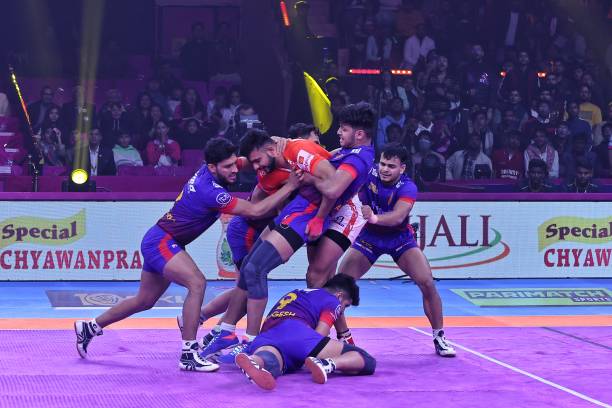
Kabaddi sport, a traditional and thrilling team game, holds deep cultural significance in Indian villages. It’s not just a sport; it’s a powerful part of village life, reflecting values of teamwork, bravery, and community spirit. From its roots in ancient India to its modern-day resurgence, Kabaddi has evolved into a national passion. This article explores why Kabaddi sport remains an integral part of rural India, delving into its cultural, social, and historical importance. We will examine the essence of Kabaddi sport, how it’s played, its role in strengthening community bonds, and its influence on the youth in Indian villages.
The Cultural Significance of Kabaddi Sport
Kabaddi sport is deeply embedded in the cultural fabric of India, especially in rural areas. It’s more than just a physical contest; it’s a reflection of the community’s spirit, discipline, and connection to the land. In the villages, Kabaddi matches are often the highlight of local festivals, serving as both entertainment and a social gathering. The simplicity of the game, requiring no expensive equipment, makes it accessible to people of all economic backgrounds, thus fostering an inclusive environment where everyone can participate.

In many Indian villages, Kabaddi is a symbol of strength, resilience, and unity. It brings people together, regardless of age, gender, or social status. Local tournaments are held regularly, with the entire village participating either as players or as enthusiastic spectators. This fosters a sense of community pride and camaraderie, making Kabaddi sport a cornerstone of village life.
Kabaddi Sport: A Tool for Social Interaction and Bonding
One of the key aspects of Kabaddi sport is its ability to unite people. It acts as a social event that allows people from different backgrounds to interact and form bonds. The sport’s emphasis on teamwork and strategy mirrors the collective nature of village life, where cooperation is necessary for survival and success. The intense physical nature of Kabaddi also teaches valuable life skills like discipline, respect, and perseverance, which are crucial in rural communities.

In rural India, where modern recreational activities may not always be accessible, Kabaddi offers a local solution that brings people together in a healthy, competitive environment. The matches are often accompanied by cheers, chants, and celebrations, creating a festive atmosphere that fosters social cohesion. This sense of unity can have a positive impact on the village’s overall well-being and strengthen relationships between different generations.
Historical Context: How Kabaddi Sport Originated in Indian Villages
The origins of Kabaddi sport date back thousands of years to ancient India. While the game’s history is somewhat obscure, it is believed to have been practiced as a form of physical training for warriors. In its early form, Kabaddi was a way to test strength, agility, and strategic thinking. Over time, it evolved into a team sport and was adopted by rural communities as a form of entertainment and competition.
Kabaddi sport’s roots in ancient Indian traditions are still evident today, with many modern matches being played in the same spirit as the ancient versions. While the game has become more formalized and professionalized in recent years, its core values of bravery, unity, and strategic thinking remain the same.

Kabaddi Sport’s Role in Rural Education and Youth Development
In Indian villages, Kabaddi plays a significant role in the education and development of young people. It serves as a platform for children and young adults to showcase their physical abilities while teaching them valuable lessons about teamwork, discipline, and leadership. For many youths in rural India, Kabaddi is a gateway to success, with some even going on to represent their state or country in national and international competitions.
Beyond the physical benefits, Kabaddi sport offers important life lessons that are crucial for personal development. The game requires players to think on their feet, make quick decisions, and work together towards a common goal. These skills are transferrable to various aspects of life, including education, career, and personal relationships.
The Growing Popularity of Kabaddi Sport: From Villages to the International Stage
In recent years, Kabaddi sport has gained widespread popularity beyond Indian villages, thanks in large part to the Pro Kabaddi League (PKL). The PKL has brought Kabaddi into the mainstream, attracting a large national and international audience. Despite its professionalization, the roots of the sport in rural India remain strong. The league’s success has also contributed to the sport’s revival in rural areas, inspiring a new generation of players to take up Kabaddi and compete at the highest level.
The growth of Kabaddi at the professional level is also helping to raise awareness about its cultural importance in Indian villages. As the sport continues to gain recognition, it is bringing global attention to the traditions and values that make Kabaddi such an integral part of rural India.
Kabaddi Sport’s Role in Promoting Health and Fitness
In addition to its social and cultural significance, Kabaddi sport is also a great way to promote health and fitness in rural India. The sport requires a high level of physical fitness, including strength, agility, and endurance. For villagers, especially in rural areas with limited access to modern gyms or fitness facilities, Kabaddi offers a fun and accessible way to stay active and healthy.
The physical demands of Kabaddi help to build strength, improve cardiovascular health, and enhance coordination and balance. This contributes to the overall well-being of players and promotes an active lifestyle, which is particularly important in rural communities where sedentary activities like watching TV or using smartphones are becoming more prevalent.
The Future of Kabaddi Sport in Indian Villages
As Kabaddi sport continues to grow in popularity, it will likely play an even more significant role in the cultural and social life of Indian villages. With the support of government initiatives, private organizations, and increased media exposure, Kabaddi has the potential to become a major force in rural development. By promoting healthy competition, encouraging teamwork, and fostering a sense of community, Kabaddi can contribute to the long-term well-being of villages across India.
SUGGESTED FOR YOU
Conclusion
Kabaddi sport is not just a game; it is a cultural phenomenon that continues to thrive in Indian villages. Its rich history, emphasis on community, and role in youth development make it an integral part of rural life. Whether played as a casual pastime or in formal competitions, Kabaddi remains a symbol of strength, unity, and pride for millions of people across India. As the sport continues to grow, it will undoubtedly maintain its place as the heartbeat of Indian villages, inspiring future generations to embrace its values and traditions.
By understanding the profound cultural significance of Kabaddi, we gain insight into how sports can shape communities, promote unity, and celebrate tradition in the modern world.









